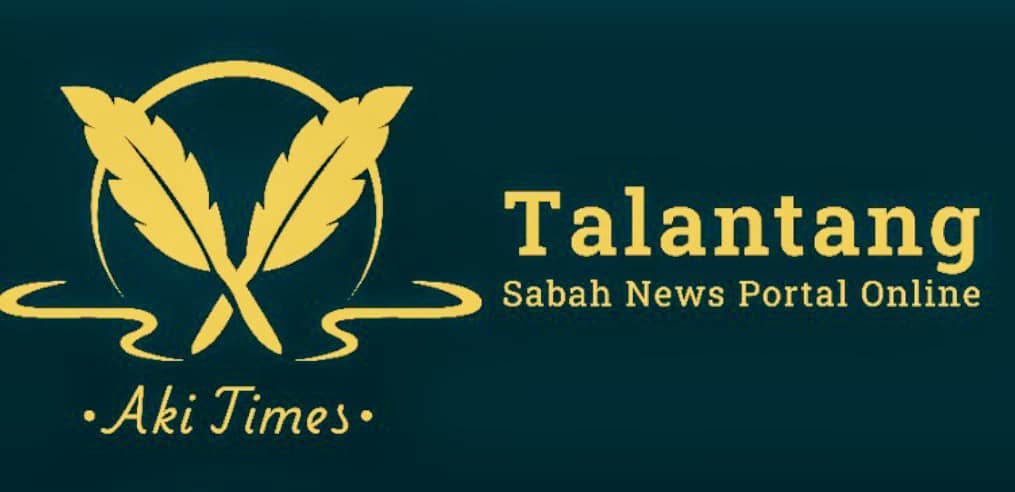By Datuk Philip Golingai
The Star’s Senior News Editor
“SOLO” was the defining mood at the PBS and Sabah STAR convention last weekend.
Solo as in Gabungan Rakyat Sabah (GRS), which is the two parties that are part of, to contest in all 73 seats in the impending Sabah elections.
GRS comprises eight Sabah-based parties, including Parti Gagasan Rakyat Sabah (PGRS), headed by Sabah Chief Minister Datuk Seri Hajiji Noor; Parti Bersatu Sabah (PBS); Sabah STAR; Sabah Progressive Party (SAPP); Usno (United Sabah National Organisation); Liberal Democratic Party; Parti Harapan Rakyat Sabah; and Parti Cinta Sabah (PCS).
Solo means GRS to contest against its GRS-PH Plus government partner, Pakatan Harapan. Going solo means GRS, a locally based coalition, taking on national-based coalitions such as Pakatan, Barisan Nasional, and Perikatan Nasional.
“GRS!!!” the MC (Master of Ceremonies) shouted during the convention attended by GRS chairman Hajiji, PBS founder Tan Sri Joseph Pairin Kitingan, acting PBS president Datuk Seri Dr Joachim Gunsalam, Sabah STAR president Datuk Seri Dr Jeffrey Kitingan and GRS component parties presidents. The crowd – 7,000 PBS and Sabah Star leaders and members at Hongkod Koisaan in Penampang – responded: “Solo!!! Solo!!! Solo!!!”
It was a resounding message to Hajiji, who has yet to decide whether to go solo or form an electoral pact with Pakatan. Most parties within GRS favour contesting independently.
What was in the mind and heart of Hajiji when he heard the overwhelming shouts for solo? He has to decide.
It’s not an easy decision. Kuala Lumpur is pressuring GRS to share seats it intends to contest with two national-based coalitions, Pakatan and Barisan. Pakatan consists of PKR, DAP, Amanah and, Upko, a Sabah-based party, and Barisan comprises Umno, MCA, MIC, and Parti Bersatu Rakyat Sabah (PBRS), a local party.
Currently, what is clear – although it may change as Sabah’s politics are messy and fluid – is that GRS will not ally with Barisan.
If GRS forms an electoral pact with Pakatan, the national-based coalition will have the best of two alliances. Like a two-timing girlfriend, Pakatan will have a deal with Barisan and another with GRS.
Some GRS leaders fear that once the ballots are counted, Pakatan and Barisan will forge a political marriage, deciding the Sabah Chief Minister among themselves and leaving GRS sidelined. If that happened, GRS would have conceded winnable seats to Pakatan, especially to PKR, for the national-based coalition to secure victory.
Most Sabahans have a lingering suspicion that national-based parties like Umno, DAP and PKR make decisions on Sabah based on federal consideration, as they are KL-based. The analogy is that the state chiefs of these parties are branch managers, while their presidents in Kuala Lumpur are the CEOs.
In contrast, a local party president, such as Jeffrey of Sabah STAR, Datuk Seri Yong Teck Lee of SAPP, or Datuk Seri Shafie Apdal of Parti Warisan, serves as the CEO.
Sabahans admire Gabungan Parti Sarawak (GPS), the locally based coalition leading their Bornean neighbour. They view GPS as fighting for Sarawak’s rights. They want GRS to be like GPS.
Yet, GRS cannot genuinely embody this independent spirit if it aligns itself with Pakatan.
GRS’s tagline is “Rumah Kita, Kita Jaga” (Our Home, We Protect). Will the GRS house during the Sabah polls be occupied exclusively by local parties? Or will it have KL-based parties in its house?
However, there’s pressure from Kuala Lumpur, especially from the party of which the Prime Minister is the president.
Also, Hajiji has a political gratitude owed to Pakatan.
When Langkah Kinabalu unfolded in January 2023, Umno, which was part of the Sabah government, Warisan, and Parti KDM attempted to oust Hajiji as chief minister. In contrast, Pakatan, then in the opposition, and Umno rebels gave him the numbers to remain in power.
Last weekend’s convention marked the culmination of the PBS and Sabah STAR Memorandum of Understanding (MOU) signed on April 18, 2024. It was a landmark agreement aimed at uniting the two parties.
Formed in 1985, PBS is the oldest political party in Sabah, while Sabah STAR, established nine years ago, have been at odds with it for nearly a decade. In the 2020 Sabah elections, they broke a Perikatan, Barisan and PBS electoral pact and went against each other in several state seats. Now, both parties are aware of the consequences of fighting each other – they have fallen prey to Kuala Lumpur’s divide-and-rule tactics. With the unity MOU, PBS and Sabah STAR have agreed not to contest against each other in the coming state polls.
Political veterans who attended the convention told me that the gathering had The Spirit of 1985 vibe. It is the sentiment that swept the 46-day-old PBS into power in the 1985 Sabah elections. It echoed a time when unity and shared purpose led to significant political change, a sentiment that is now being reignited.
“Hope it stays that way. If not bergaduh lagi (PBS and Sabah STAR fighting each other again),” a Sabahan told me after watching an inspiring PBS and Sabah STAR unity video. “Jangan berpecah. Unity. Kita mau lokal. (Don’t split up. Unity. We want local parties).”
But it is 2025. Back then, four decades ago, it was less complicated. It was a local party (the mighty Berjaya government) versus a local party (Usno, the grand old man of Sabah politics) versus a local party (the upstart PBS).
Now, PBS has splintered into several parties, including Upko, PBRS, and Sabah Star. It is also a crowded field. With so many coalitions and parties contesting, there will likely be a minimum of three-cornered fights in the 73 state constituencies, adding an element of unpredictability and excitement to the upcoming elections.
Will GRS go solo? The “Solo!!! Solo!!! Solo!!!” chant at the PBS and Sabah STAR convention is still reverberating among voters who want a local versus national fight.
Note: This article appeared in the Star
